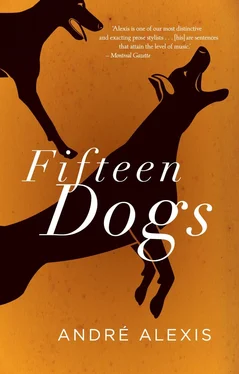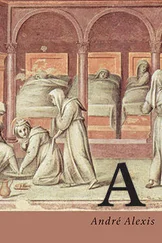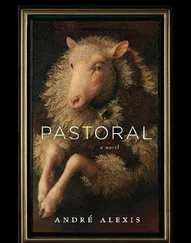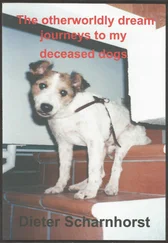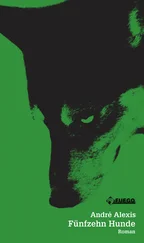Though most of the dogs understood how Majnoun had opened his cell, not all of them were capable of doing the same. There were various reasons for this. Frick and Frack, two Labrador yearlings who had been left overnight for neutering, were too young and impatient for the doors. The smaller dogs — a chocolate teacup poodle named Athena, a schnauzer named Dougie, a beagle named Benjy — knew they were physically incapable of reaching the bolt and whined their frustration until their cells were opened for them. The older dogs, in particular a Labradoodle named Agatha, were too tired and confused to think clearly and hesitated to choose liberty, even after their doors had been opened for them.
The dogs, of course, already possessed a common language. It was language stripped to its essence, a language in which what mattered was social standing and physical need. All of them understood its crucial phrases and thoughts: ‘forgive me,’ ‘I will bite you,’ ‘I am hungry.’ Naturally, the imposition of primate thinking on the dogs changed how the dogs spoke to each other and to themselves. For instance: whereas previously there had been no word for ‘door,’ it was now understood that ‘door’ was a thing distinct from one’s need for liberty, that ‘door’ existed independently of dogs. Curiously, the word for ‘door’ in the dogs’ new language was not derived from the doors to their cells but came, rather, from the back door to the clinic itself. This back door, large and green, was opened by pushing a metal bar that almost bisected it. The sound of the metal bar, when pushed, was a thick, reverberant thwack. From that night on, the dogs agreed that the word for door should be a click (tongue on upper palate) followed by a sigh.
To say that the dogs were bewildered is to understate it. If they were ‘bewildered’ when the change in consciousness came over them, what were they when, all having left the clinic by the back door, they looked out on Shaw Street and suddenly understood that they were helplessly free, the door to the clinic having closed behind them, the world before them a chaos of noise and odour whose meaning now mattered to them as it had never mattered before?
Where were they? Who was to lead them?
For three of the dogs, the strange episode ended here. Agatha, who was in constant and terrible pain and had been left at the clinic to be put down, could find no point in going on with the others. She had lived a good life, had had three litters and, so, had had all the respect she needed from the bitches she sometimes met while out with her mistress. She wanted no part of a world in which her mistress did not figure. She lay down by the clinic’s door and let the others know she would not leave. She did not know that this decision meant her death. It did not occur to her — it could not — that her mistress had left her to face death on her own. The worst of it was, the following morning, when those working at the clinic discovered her — along with the mutts, Ronaldinho and Lydia — they were not kind. They took their frustration out on Agatha, hurting her as she was brought to the silver table where she was to be put down. One of the workers slapped her as she raised her head in an effort to bite him. She knew as soon as she saw the table that the end had come, and her final moments were spent in a useless effort to communicate her desire to see her mistress. In her confusion, Agatha hoarsely barked the word for ‘hunger’ over and over until her spirit was released from her body.
Though Ronaldinho and Lydia lived longer than Agatha, their ends were almost as unhappy. Both had been left at the clinic for minor ailments. Both were sent home to grateful owners. And in both cases their new ways of thinking poisoned what had been (or what they remembered as being) idyllic and relatively long lives. Ronaldinho lived with a family that loved him, but at his return from the clinic he began to notice how condescending they were. Despite the palpable evidence that Ronaldinho had changed, the family treated him as no more than a plaything. He learned their language. He would sit, stand, play dead, roll over or beg before the commands were entirely spoken. He learned to turn off the stove when the kettle’s whistle sounded. And once, when it was asserted in his presence that dogs could not count to twenty, he stared at the person who’d said so and barked — ironically, bitterly — twenty times. No one noticed or cared. Worse: perhaps because they suspected Ronaldinho was ‘not his old self,’ the family shunned him somewhat, perfunctorily petting his back or head as if in memory of the dog he had once been. He died bitter and disillusioned.
Lydia fared worse. A cross between a whippet (her mother) and a Weimaraner, she had always been something of a nervous creature. The advent of human intelligence made her more nervous still. She, too, learned the language of her masters, scrupulously doing or anticipating whatever was wanted of her. She did not mind their condescension. She minded that they were inattentive and neglectful, because along with ‘primate mind’ there came an acute awareness of time. The passage of time, each moment like a scabies mite crawling under her skin, was an unbearable scourge. The scourge was assuaged only by the presence of her masters, by their company. As her masters, a professional couple who smelled of lilacs and citrus, were often away for eight hours at a stretch, however, Lydia’s suffering was terrible. She would bark, howl and plead for hours on end. Finally, when her mind could no longer bear the repeated agony, it chanced on a typically human haven from suffering: catatonia. One day, her masters discovered her in the living room, her legs rigid, her eyes unclosed. They took her to the clinic on Shaw, and when the vet told them there was nothing he could do, they had her put down. They had not been considerate masters but they were sentimental. They buried Lydia in their back garden, planting — in her honour — a carpet of yellow flowers ( Genista lydia ) on the mound that marked her resting place.
+
The twelve who set out from Shaw were driven as much by confusion as anything else. The world seemed new and marvellous and yet it was familiar and banal. Nothing should have surprised them, yet everything did. The pack moved warily, going south on Strachan: over the bridge, down to the lake.
They were, it has to be said, almost instinctively drawn to the lakeshore. Its confluence of reeks was as bewitching to the dogs as the smell of an early-morning bakery is to humans. There was, first, the lake itself: sour, vegetal, fishy. Then there was the smell of geese, ducks and other birds. More enticing still, there was the smell of bird shit, which was like a kind of hard salad sautéed in goose fat. Finally, there were more evanescent whiffs: cooked pork, tomatoes, grease from cow’s meat, corn, bread, sweetness and milk. None of them could resist it, though there was little shelter by the lake, few places to hide if masters came for them.
None could resist the lake, but it occurred to Majnoun that they should. It occurred to him that the city was the worst place for them to be, filled as it was with beings that feared dogs who would not do their bidding. What they needed, thought Majnoun, was a place where they would be safe until they decided on a course that was good for all of them. It also occurred to him that Atticus, who was at the head of the pack, was not necessarily the one to lead. It wasn’t that he himself wanted to lead. Though he was swept up in the present adventure and fairly happy to be with the others, Majnoun was more comfortable around humans. He did not trust other dogs. This made the thought of leadership unpleasant to him. The true things — food, shelter, water — would have to be dealt with by all, but who would lead, and whom would he choose to follow?
Читать дальше
